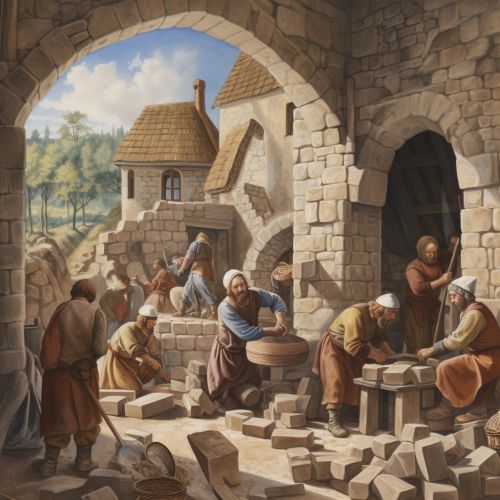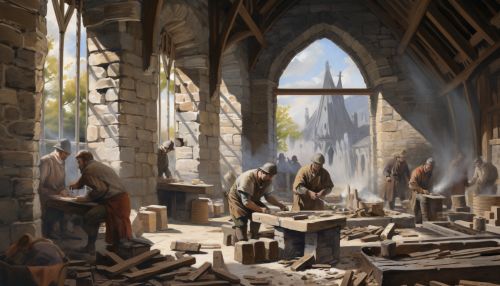History of Freemasonry
Origins of Freemasonry
Freemasonry, as we know it today, traces its roots back to the stonemason guilds of the Middle Ages. These guilds were organizations of skilled craftsmen who worked on the construction of cathedrals and other large buildings. The term "freemason" was originally used to describe highly skilled stonemasons who were free to travel from city to city to find work.


Over time, these guilds began to accept members who were not actual stonemasons. These new members, known as "speculative masons" or "accepted masons", were typically men of wealth and influence who were attracted to the guilds' traditions and rituals. By the 17th century, these speculative masons had begun to dominate the guilds, which gradually evolved into the modern system of Freemasonry.
Development of Modern Freemasonry
The formation of the first Grand Lodge in London in 1717 marks the beginning of organized, modern Freemasonry. This Grand Lodge, known as the Premier Grand Lodge, was formed by four existing Masonic lodges in London. The establishment of this Grand Lodge led to the standardization of rituals and practices, and the creation of a centralized authority for Freemasonry.
In the years following the formation of the Premier Grand Lodge, Freemasonry spread rapidly throughout Europe and the American colonies. The first American lodge was established in Boston in 1733, and by the time of the American Revolution, there were hundreds of lodges throughout the colonies.
Freemasonry and the Enlightenment
Freemasonry was deeply influenced by the ideas of the Enlightenment, a philosophical movement that emphasized reason, science, and individualism. Many of the leading figures of the Enlightenment, including Voltaire, Benjamin Franklin, and George Washington, were Freemasons.
Freemasonry's emphasis on brotherhood, equality, and freedom of thought resonated with the Enlightenment's ideals. The fraternity's rituals and symbols, many of which are based on the tools and practices of medieval stonemasons, were also seen as embodying the Enlightenment's values of hard work, practical knowledge, and the pursuit of truth.
Freemasonry in the Modern Era
In the 19th and 20th centuries, Freemasonry continued to spread around the world. Today, there are millions of Freemasons in lodges in almost every country. Freemasonry's influence can be seen in many aspects of modern society, from architecture and city planning to politics and popular culture.
Despite its widespread influence, Freemasonry has also been the subject of controversy and suspicion. Its secretive rituals and symbols, as well as its history of exclusivity and elitism, have led to accusations of conspiracy and corruption. However, Freemasons themselves see their fraternity as a force for good, promoting values of brotherhood, charity, and moral integrity.
